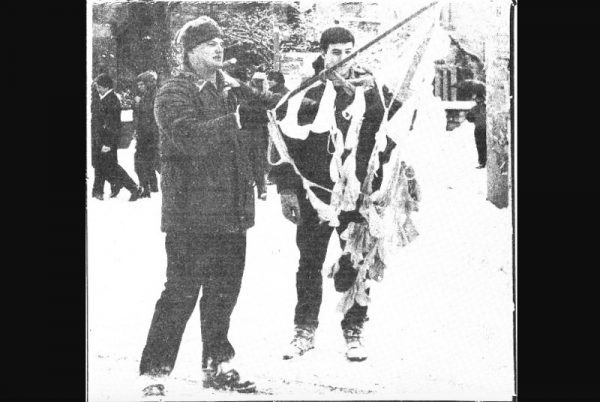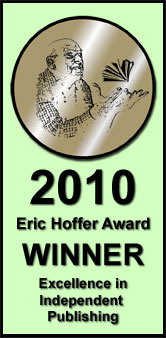Forgotten F * * kers
I am a sexual assault survivor. When I was a little over five years old, I was attacked in the foster home farm by two boys at least ten years older than I. Rape was a nearly nightly occurrence for months. I can’t say for how long, but like Dr. Christine Blasey Ford, I remember trivial things: the bunk bed, the room, the window, the clothes dresser, the teddy bear who was silent witness to my terror, the crew cuts of two teenagers and their threat that if I talked they would gut me like a chicken. Like many who are abused by the older and more powerful, I erased from my conscious mind the incidents for 46 years. The intervening years I spent in anger at society and self-destructive behavior. The root cause of my self-hatred and distrust of authority was unknown to me.
The trolley clanks up the San Francisco hill toward Alamo Square. I am on my way back after work to the halfway house for drunks and addicts thinking about my screwed-up past when the vivid memories surface. I am lying in my lower bunk bed in the small room with one other bunk bed. All four beds are occupied by boys of a similar age. A window looks out to the chicken coop, where I have the task of feeding the chickens daily. The grimy view separates the two bunks that face each other across a space of maybe five feet. We boys have to keep this space clean. No toys or clothes can litter the floor, or the fat old woman running the home would yell at us. All belongings are required to be kept in two drawers of the two four-drawer dressers placed at the ends of the two bunks. Only my beloved teddy bear shares my bunk. Teddy sits propped up against the wall next to my pillow, and I whisper and cry to him every night.
I didn’t remember any of this until a burst of recollections on the trolley. I was 51 years old. My grandparents drag me kicking and screaming to this place outside Rochester, New York. Grandmother tells the big woman they can’t deal with me. I must stay at the farm until my father can take me after his divorce and remarriage. Standing among a dozen boys, the big lady tells me I will like the farm with its chickens, goats, cows, and the white horse. The farm is a fun place. The two biggest boys with crew-cuts, wearing blue jeans and white tee shirts, stand on either side of the lady with white hair piled up on the top of her head in her print dress. They look at me with crooked smiles. One remarks, “What’s with the long hair? You look like a girl.” “Hush up,” the lady admonishes to the boys she then apologizes to my grandparents. Grandma and Grandpa depart, and I am led to the bunk bed room, where I cry all night for my mother.
The next night, the door to my room cracks opens. The two big boys slip in and close the door behind them. All four young boys turn to look at them. The crew cuts put their index fingers to their mouths and stare at three of the scared boys. The three turn their heads away and pull the sheets over their heads. They turn to me. One rips the blanket and sheet off and jumps on my back, pinning my arms to the bed, while the other grabs my legs tugging my lower body off the bed. They smell of beer and manure. I try to scream, but the first boy pushes my face into the mattress. The second boy pulls down my pajama pants and spreads my legs. “Nice ass,” he says, “just like a girl’s. Now you are going to be a girl.” He steps between my legs and forces his erect penis into my rectum. It hurts, but I can’t yell. All I can do is twist and shake. “Good,” the rapist declares, “I like it when the pig wriggles.” Pumping furiously, Two finally stops and pulls his penis out. Number one leans down over my back and whispers in my ear, “Tomorrow night is my turn,” and lets me go. As they open the door and sneak out. Number One, warns me, “if you squeal on us, we will hurt you bad.”
The rapes went on for several months. Not every night; but every night I lived in terror, until my father came and took me away. I never said anything to anyone. My father never knew; nor did my stepmother. As the years went by I hated my parents for allowing this to happen to me, and my grandparents for causing this to happen, and an uncaring society. The anger stayed; the memory faded. Sex I saw as an ugly experience. Society, I believed, was corrupt and full of liars. Alcohol was a way of avoiding conscious feeling. I went to Yale and found many others who masked their emotions in booze. I disliked myself and most of the arrogant and privileged students. In my junior year I attempted suicide. I left the prestigious university, spent a year away, where I grew up and able to see the good in life instead of seeing only the bad. Coming back to Yale, I finally experienced the wonderful aspects of the university — the intellectual challenges, the cultural exposure, and the students, who were creative, not all full of themselves, and didn’t all aspire to be inducted into the elite that separated themselves in the tombs of secret societies.
I stopped drinking, not because I had insight into its destructive results, but because I witnessed my stepmother become a disabled alcoholic. I discovered another way to avoid reality. I became a pot head and a cocaine junkie. After a stint at the Betty Ford Center and the time up in the San Francisco, when the realization occurred that I had been sexually assaulted, I began to heal. Restoration took a long time. It began after I stepped off the trolley, and staggered up the mound of Alamo Square. Sitting on a bench looking out over the city of San Francisco, I wept for hours as I recalled the room of the rapes, how I had gotten there, and the terror I had felt. My delayed return to the halfway house that day got me into a lot of trouble. This catharsis was the first event that lead to my eventual ejection from the halfway house.
Many relapses occurred after I was thrown out. I thought I was doomed in the negative hateful mental place I inhabited. Only later did I realize that my recovery required allowing horrid memories to surface, accepting their reality, and forgiving myself. I finally become free of most of the resentments and all of the resultant addictions that were ruining my life. I still seethe with anger sometimes, especially when I see women and men who have been victims of unthinking egoism that makes it OK to abuse others. “Boys will be boys,” isn’t an adequate excuse for demeaning others because you are rich, white, and bright. The Forgotten F * * kers do not get a free pass for bad behavior. They need to express the truth, to accept their weaknesses as part of abused humanity, to accept their responsibility for abusing other people, and to forgive themselves. Then I will forgive them, as I have forgiven myself for my failures to be decent.





